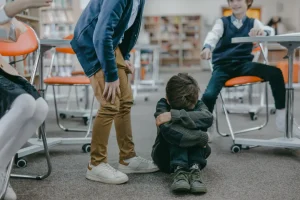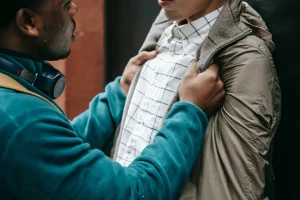The Welsh Government Legislation Keeping Learners Safe, lays out the safeguarding and child protection laws that must be followed by all schools, colleges, governing bodies and local authorities in Wales. This blog breaks down sections 5, 6, 7, and 8 of the legislation.
This blog is part 3 of a 3-part series about the Guidance Keeping learners Safe. Read Part 1 HERE and Part 2 HERE.
Keeping Learners Safe Guidance
The guidance sets out things that schools and colleges:
- Must do because it’s the law; and,
- Should do because it’s part of this guidance.
The summary of the guidance divides into eight sections:
- About Safeguarding in Wales
- Safeguarding Roles and Responsibilities
- Responding to Concerns
- Safeguarding in specific circumstances
- Domestic abuse, gender-based violence, sexual violence and harmful cultural practices
- Keeping Children Safe Online
- Community Cohesion
- Safer Staff Recruitment Practice
This blog is part 3 of a 3-part series about the Guidance Keeping Learners Safe. This blog will focus on sections 4, 5, 6, 7 and 8 of the guidance. Read Part 1 HERE and Part 2 HERE.

Safeguarding in specific circumstances
It is vital that everyone working within the organisation knows how to spot the signs of a child at risk of harm, neglect or abuse so they can follow the organisations safeguarding policy and procedures in order to raise their concerns.
Here are all of the Wales Practice Guides:
- Safeguarding children from harmful practices related to tradition, culture, religion or superstition
Keeping Learners Safe also lists different safeguarding scenarios as well as the guidance schools and colleges should reference for these circumstances. The list Includes:
- Peer-on-peer abuse and harmful sexual behaviour
- Child abuse images and the internet
- Children missing from home or care
- Bullying
- Hate Crime
- Inclusion and pupil support
- Children missing from education
- Looked-after children
- Substance misuse
- Suicide and self-harm
- Physical contact with pupils, including restraint
Pages 13, 14 and 15 of Keeping Learners Safe have a full list of links and resources available to help staff to safeguard children in each of these circumstances.

Domestic abuse, gender-based violence, sexual violence and harmful cultural practices
Domestic Abuse
The Welsh Government has several guides to help educators better understand domestic abuse including:
- A National Strategy and Cross-Government Delivery Framework
- Good Practice Guide: A Whole Education Approach to Violence against Women, Domestic Abuse and Sexual Violence in Wales
- Violence Against Women, Domestic Abuse And Sexual Violence — Guidance For Governors
It is vital that schools and colleges talk about domestic abuse to help children and young people recognise it as inappropriate behaviour. If teachers or staff have any concerns that a child or their family may be experiencing domestic abuse, they should contact the DSP immediately.
Female Genital Mutilation (FGM) and Forced Marriage
Staff and teachers should be aware that girls may be taken abroad for FGM and know the signs of FGM. There is guidance available at:
- Multi-agency statutory guidance on female genital mutilation
- Mandatory Reporting of Female Genital Mutilation — procedural information
For instances of Forced Marriage, there is step-by-step advice available at multi-agency practice guidelines: Handling cases of Forced Marriage.

Keeping Children Safe Online
There is an area of Hwb, Keeping Safe Online which has online tools and resources to aid schools and colleges in keeping learners safe online. Other resources include:
Live-streaming lessons
Advice and guidance for keeping children and young people safe when live-streaming lessons can be found here:
Sharing images
The sharing of intimate imagery can result in the embarrassment, bullying and exploitation of those pictured. There is guidance and advice available at:
- Sexting: Responding to incidents and safeguarding learners
- Online Safety: Five key question for governing bodies
- Report Harmful Content
- Professionals Online Safety Helpline (POSH)
- Keeping safe online on Hwb.
Childline has developed report and remove, a tool which allows young people to report an image and get it removed from the internet.

Community Cohesion
Radicalisation
Part of safeguarding includes stopping radicalisation of children and young people. Schools and colleges should be aware that there are several factors that can influence a vulnerable child’s interests and there are certain changes in behaviour to look out for. Where ideologies are apparent the DSP should be contacted.
It is vital that all safeguarding policies cover radicalisation and extremism. More guidance is available at:
- Prevent Duty Guidance: for England and Wales
- Prevent duty guidance: for further education institutions in England and Wales
- Respect and resilience: Developing community cohesion — a common understanding for schools and their communities
- Creating Safe Learning Communities
The Referral Form
If the DSP thinks a child is at risk of radicalisation, they should use the All Wales Partners Prevent Referral Form.
Safer Staff Recruitment Practice
Legally all teaching and support staff must be registered with the Education Workforce Council (EWC) if they are in one of the registration categories. Education establishments must check this before they employ anyone.
Supply cover
Schools and colleges are encouraged to use supply agencies on the National Procurement Service framework. The DBS status of supply teachers must be checked by both the agency and the school or college, neither should assume the check has been a=carried out by the other organisation. Supply staff must also be registered with the EWC.
Whistleblowing
All Governing bodies should have a whistleblowing policy in place. Guidance is available at:
The full summary of Keeping Learners Safe is available here.
Read parts 1 and 2 of the blog series.
How Can Training in Safeguarding Help you in your Role
If you work with children and young people, you are responsible for keeping those in your care safe from harm. Our safeguarding course on our Equal Academy covers types of abuse, reporting a concern, and how best to deal with disclosures from learners.
This course has been developed by two of Equal’s team members. One who was an ex primary school headteachers with many years experience as a Designed Safeguarding Person, and the other who is Equal’s Designed Safeguarding Person and is a practicing secondary school teacher in Wales.
Our safeguarding course is completely free of charge for all Equal staff members!





